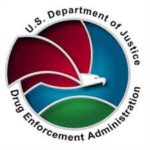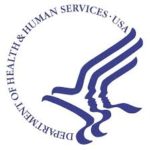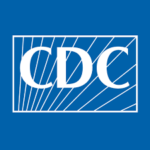The following is the latest health policy news from the federal government for May 5-11. Some of the language used below is taken directly from government documents.
End of the COVID-19 Public Health Emergency
- ASH has prepared a summary of the status of selected government health care waivers and flexibilities following expiration of the COVID-19 public health emergency today. The ASH summary covers telehealth, COVID-19 treatment and coverage, flexible hospital operations, long-term-care hospitals, inpatient rehabilitation facilities and units, patient cost-sharing, and state Medicaid waivers. Find the ASH summary here.
- CMS has sent a memo to state Medicaid and CHIP programs about the end of the COVID-19 public health emergency and the COVID-19 national emergency and the implications for Medicaid and CHIP. Find that memo here.
- The CDC has posted information about how its role and responsibilities will change with the end of the COVID-19 public health emergency. Some of those changes involve the data it will collect from providers and how it will share that data. Find this new information here. Another CDC bulletin, with a greater emphasis on COVID-19 surveillance, offers a more detailed and technical explanation. Find it here.
- The White House has posted a fact sheet on actions the administration has taken to ensure continued protection against COVID-19 as the public health emergency ends. The fact sheet includes links to resources with information about continued access to COVID-19 vaccines, treatment, and community testing; the extension of selected flexibilities, including for telehealth; and continued federal investment in vaccine development and research on Long COVID. Find the fact sheet here.During the COVID-19 public health emergency, HHS’s Office of the Inspector General issued policy statements and information about the degree to which it would enforce certain federal requirements during the public health emergency. With that emergency now over, the office has posted information describing those policy statements and explaining that the flexibilities they conferred will end after today. Find that information here.
- CMS has posted an FAQ that addresses its waivers and flexibilities upon the end of the COVID-19 public health emergency including hospitals billing for originating site services and telehealth provided by their employed therapists. Find it here.
 Drug Enforcement Administration (DEA)
Drug Enforcement Administration (DEA)
The DEA has announced that the full set of telemedicine flexibilities for prescribing controlled medications that were established in response to the COVID-19 public health emergency will remain in place for six more months, through November 11. During this period the DEA and HHS’s Substance Abuse and Mental Health Services Administration (SAMHSA) will continue to consider the flexibilities’ future. Learn more from this DEA announcement, which includes a link to a Federal Register notice.
Centers for Medicare & Medicaid Services
- CMS has updated its SSI and spousal impoverishment standards, which are considered when individuals seek Medicaid coverage of nursing home care. Find an updated explanation of the spousal impoverishment standards here and the new standards themselves here.
- CMS has posted a bulletin about updates to current claims editing under its Medicare skilled nursing facility prospective payment system. Find that bulletin here.
- CMS has released an update of its definition of a digital quality measure. Find it here.
- CMS has posted the electronic clinical quality measure (eCQM) specifications for the 2024 reporting/performance period for eligible hospitals and critical access hospitals, outpatient quality reporting, and eligible clinician quality reporting programs. Measures will not be eligible for 2024 reporting unless and until they are proposed and finalized through notice-and-comment rulemaking for each applicable program. The updated eCQM specifications are available on the Electronic Clinical Quality Improvement eCQI Resource Center for eligible hospitals/critical access hospitals, outpatient quality reporting, and eligible clinicians pages under the 2024 Reporting/Performance Period. Other resources, including the Guide for Reading eCQMs, eCQM Logic and Implementation Guidance, tables of eCQMs, and technical release notes are also available on the eCQM Resources tabs on the eligible clinician, eligible hospital, and outpatient quality reporting pages.
 Department of Health and Human Services
Department of Health and Human Services
- HHS has announced new initiatives to increase access to mental health resources and support. FindSupport.gov is a new web site that will seek to help people identify available resources, explore information about various treatment options, and learn how to get the support they need for issues related to mental health, drugs or alcohol. The HHS Children and Youth Resilience Challenge will provide $1 million in funding for innovative, community-led solutions to promote resilience in children and adolescents affected by the COVID-19 pandemic and other disasters and promote positive strategies to help children and adolescents thrive. Learn more about the two programs from this HHS news release. Proposals for the Resilience Challenge are due July 7 and an informational webinar on that funding will be held on Thursday, May 18 at 3:00 (eastern). Go here to register to participate. For more information about the Challenge and how to submit a proposal, go here.
- HHS’s Agency for Healthcare Research and Quality (AHRQ) has issued a “Special Emphasis Notice” to inform the research community of its strong and continued interest in receiving applications that advance the goal of achieving equity in health care delivery. Learn more from this Special Emphasis Notice. The notice is not associated with a specific funding program or deadline but invites inquiries from interested parties.
- HHS’s Office of the Inspector General has issued a report explaining that Medicare improperly paid providers for some psychotherapy services, including some provided via telehealth, during the first year of the COVID-19 public health emergency. The report concludes that more than half of those services delivered to Medicare patients, or nearly $600 million worth, did not meet Medicare’s billing standards. Find that report here.
HHS Newsletters
Provider Relief Fund
HHS has posted the following deadlines for certain Provider Relief Fund-related activities.
- May 15 – the reporting portal opens for request to report late-approved providers.
- June 2 – the reporting portal closes for request to report late-approved providers.
- June 3 – deadline to apply Provider Relief Fund and/or American Rescue Plan rural funds to lost revenues.
 Centers for Disease Control and Prevention
Centers for Disease Control and Prevention
- The CDC is seeking nominations for membership on its Advisory Committee to the Director. The committee consists of up to 15 experts knowledgeable in areas relevant to the CDC mission, such as public health, global health, health disparities, biomedical research, and other fields. Learn more about the committee, the background it seeks from nominees, and the submission process from this CDC announcement, which includes a link to a Federal Register notice. The deadline for applications is June 5.
- The CDC has revised its infection prevention and control recommendations for health care personnel in light of COVID-19 with updated guidance for nursing homes. Find it here.
Food and Drug Administration
The FDA has finalized recommendations for assessing blood donor eligibility using a set of individual risk-based questions to reduce the risk of transfusion-transmitted HIV. These questions will be the same for every donor, regardless of sexual orientation, sex or gender. Blood establishments may now implement these recommendations by revising their donor history questionnaires and procedures. Learn more from this FDA announcement.
Government Accountability Office (GAO)
- The GAO has performed a review of the manner in which HHS’s Health Resources and Services Administration (HRSA) has implemented its exceptions process for hospitals requesting temporary exceptions so they could continue participating in the 340B program when they were unable to meet their 340B DSH percentage requirements because of factors they said were related to the COVID-19 pandemic. Among the more common reasons for seeking exceptions was state moratoriums on elective surgeries during the height of the pandemic that led to decreases in the total number of days Medicaid patients were in their hospitals, and in turn, decreases in those hospitals’ DSH percentages. See the GAO report here.
- The GAO has published a new report: “Midwives: Information on Births, Workforce, and Midwifery Education.” Find it here.
- The GAO has submitted testimony to the House Energy and Commerce Committee’s Health Subcommittee on public health preparedness and the deficiencies it has found in HHS’s ability to lead and coordinate preparedness for, and response to, public health emergencies. Find that testimony here.
Stakeholder Events
CMS – Health Equity Conference – June 7-8
CMS will hold a health equity conference in Washington, D.C. on Wednesday, June 7 and Thursday, June 8; the conference also will be streamed for virtual participation. Learn more about the conference agenda, speakers, and how to register to participate and find an FAQ in this CMS notice.
CDC – Healthcare Infection Control Practices Advisory Committee Meeting – June 8-9
The CDC’s Healthcare Infection Control Practices Advisory Committee will hold public meetings on Thursday, June 8 and Friday, June 9 at 9:00 (eastern) on both days. The agenda includes updates on CDC activities for the prevention of health care-associated infections and reports from various subcommittees. Individuals may participate in person or virtually and registration is required. Learn more about the meeting and how to register and participate from this CDC announcement.

